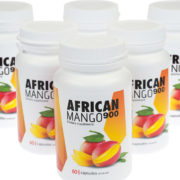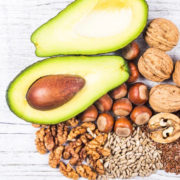Nowadays, the word organic or natural can be commonly found in many beauty and health products. Here is the first shocking truth about them, there are absolutely no industry standard or regulation for using either of these terms. I know this might seem shocking but it is the truth. If you are truly looking for an organic product, one of the ways is to spot the USDA label. Even then, this label only means that the product is made up of ingredients without synthetic chemicals, irradiation and pesticides.
Quality Difference
There is also nothing about natural or organic that can tell us about the quality of a product. It simply means that it is supposed to be composed of natural ingredients without any chemicals. Even then, the claims of natural or organic on cosmetic products are very dubious without the USDA label. A high quality cosmetic product is one that can protect and make your skin look younger, heal your acne or dry skin, control your skin oil or rosacea and address many other skin problems that it claim that it could. A natural skin care product doesn’t indicate that it has superior performance at all. In fact, some organic products may actually hurt our skin!
Marketing Message
All in all, there is no substantiated, published research anywhere proving that organic ingredients are superior to non-organic or synthetic ingredients. There are good and bad ingredients in each category. In order to have a better skin, it is important for all of us to see through the "organic" marketing messages and decide more based on the reviews, experiences and the quality of the product brand.
Cleaner?
One other major misconception on organic products is that they are cleaner. Organic products are not cleaner, they might even have higher risk of contamination as they might be composed of natural ingredients that are not well cleansed. Products made with chemicals on the other hand could be cleaner as they went through several treatment process before being packaged inside a container.
Organic Irritant
Here is another awakening fact for you to consider. An organic irritant is still… an irritant. That’s right, being organic does not make the irritant any safer from an irritant in other non-organic products. Lots of plant extracts, which indeed are organic, contain irritating properties that deplete collagen, cause free-radical damage, and clog pores. Thus, natural and organic products often are filled with irritating, skin-damaging plant extracts and minerals.
True Meaning
The organic term certainly means something in the food industry. However, in the cosmetic industry, the term means nothing at all. There is no regulations and rules for the usage of the organic term. Products which claim to be organic might still contain chemical ingredients and most of them do. It is widely used more as a marketing message than anything else. One other point to takeaway is that being organic doesn’t make the product any better than its counterparts. An organic product not properly made and research could still bring harmful effects to one’s skin.
Products labelled organic are not bad, but they are not better just because they are organic. It is better for our skin and our wallets to judge and buy cosmetic products without being affected by the strong organic message present in each of them. In this way, we can make a better judgement and save money from buying the wrong products. I hope this post has been informative for you and do let me know what you think about organic cosmetics!














